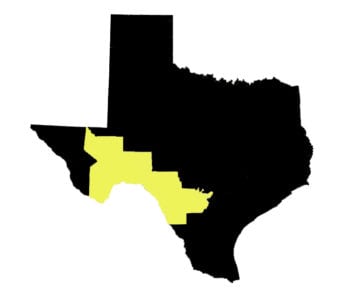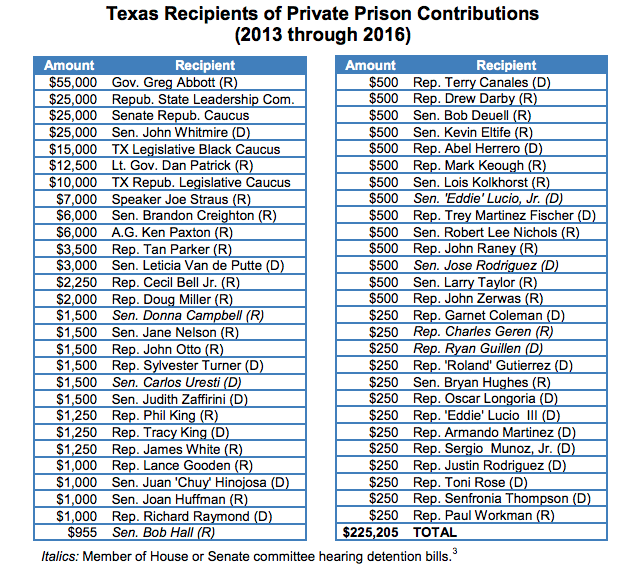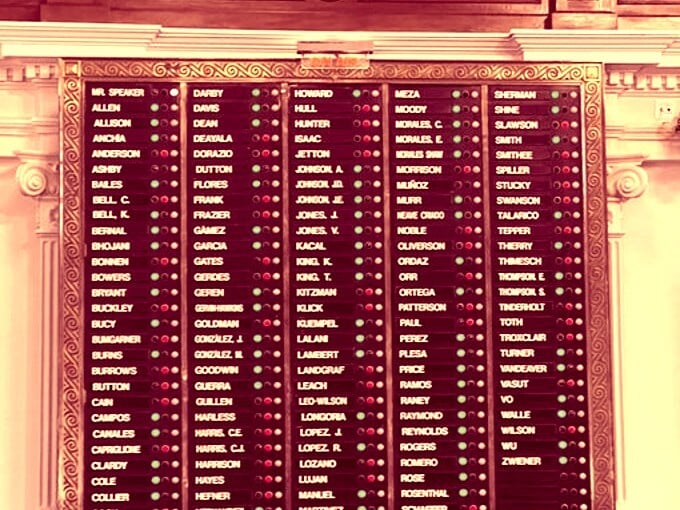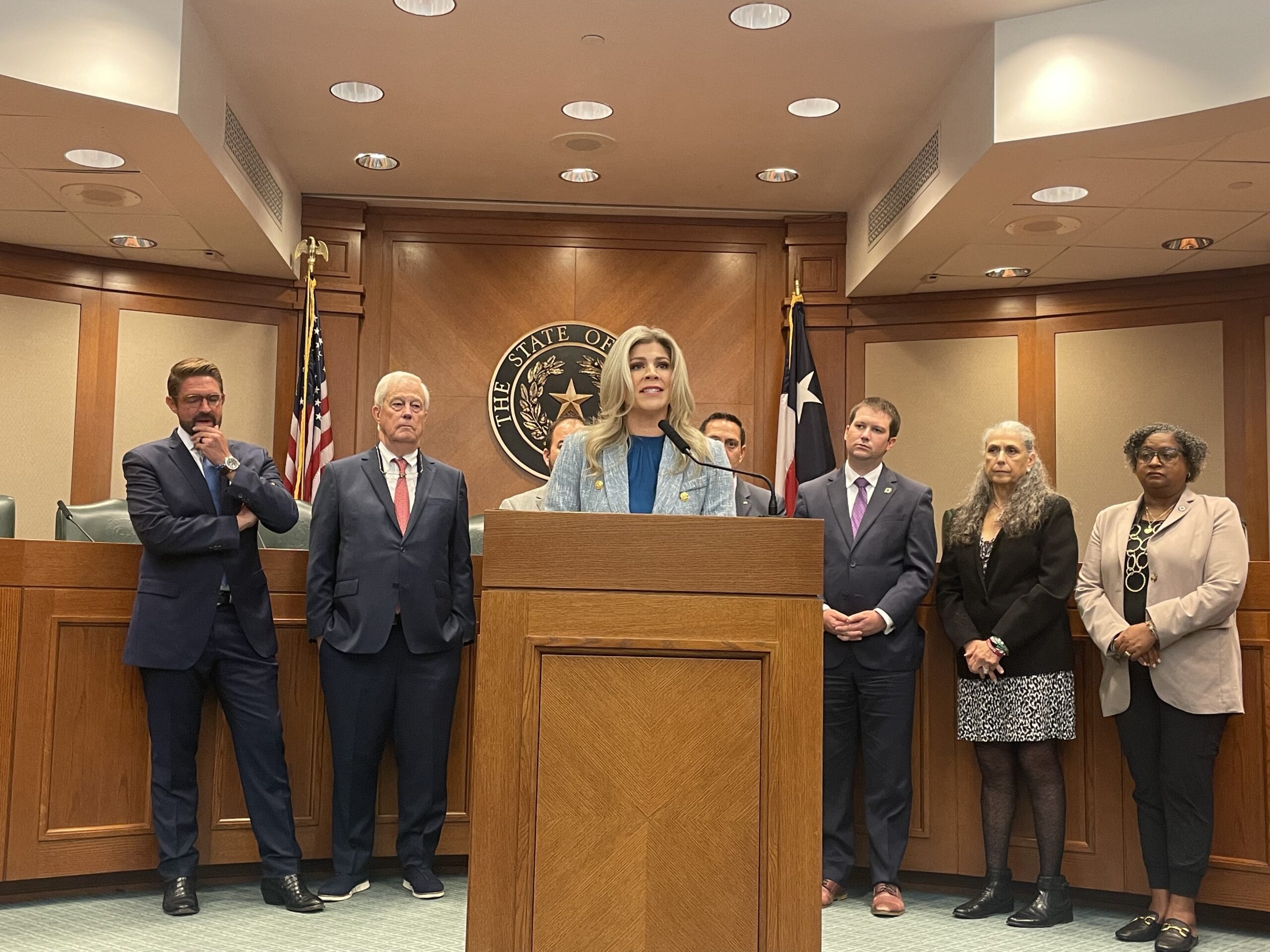
Could Private Prison Cash Become a Liability for Texas Democrats?
Two candidates in a San Antonio special election are beefing over contributions from a private prison firm linked to Trump’s family separations.

Trump’s family separations scandal has reared its head in the San Antonio race to replace disgraced former state Senator Carlos Uresti.
On Tuesday, Democratic state Representative Roland Gutierrez lashed out at one of his opponents in the race to replace Uresti, former Democratic Congressman Pete Gallego, for accepting a $5,000 donation from private prison giant GEO Group during the 2014 cycle. GEO operates immigrant detention facilities around the country, including ones now holding parents split from their kids.
“No candidate should take contributions made possible through tearing apart families,” said Gutierrez in a press release, adding that he had also received an “unsolicited” $250 donation from GEO, but since donated the money to RAICES, a San Antonio immigrant rights nonprofit. Gutierrez called on Gallego to do the same.

In a phone call, Gallego rejected the idea he should donate the $5,000, calling Gutierrez’s attack disingenuous. “The issue here isn’t a 4-year-old contribution; the implication is I’m somehow supportive of family separations and that’s absolutely wrong,” Gallego said. He said that he’s not currently accepting contributions from GEO and believes the company should use its profits to help reunite families.
But Gallego wouldn’t criticize for-profit detention beyond the current scandal of family separations, and he seemed to leave ambiguous whether he’d take GEO money in the future: “I … will not accept campaign contributions from companies charged with implementing the insanely wrong policy of family separation,” Gallego wrote in a text message.
On Tuesday, Gutierrez’ campaign manager, Dan DeBauche, similarly declined to comment on the general issue of for-profit detention, and also would not pledge that Gutierrez would reject GEO contributions in the future.
But on Wednesday, after this story was published, Gutierrez clarified his position on Twitter. “I will not accept any campaign donations from the private prison lobby, GEO Group or otherwise, and if ever I receive an unsolicited donation in the future, will immediately once more donate it to RAICES,” Gutierrez wrote.
In his initial press release, Gutierrez seemed fuzzy on the mechanics of Trump’s family separations. He claimed that GEO is detaining “separated toddlers.” In fact, the toddlers are in shelters run by nonprofits under contract with the federal health agency. (DeBauche said that distinction is “splitting hairs,” and emphasized that GEO is “right in the middle” of the family separations crisis).

Gutierrez’s gambit comes as the private prison industry’s influence on politics is making national headlines, and it suggests that Trump’s policies could force Democrats to clarify their positions on the immigrant incarceration industry.
In Texas, which is home to dozens of for-profit lockups, Gallego is far from alone in accepting private prison cash. Last year, Texans for Public Justice found that state legislators accepted more than $225,000 in private prison contributions from 2013 to 2016 — many prominent Democrats included. Senator John Whitmire, a Houston Democrat who chairs the Senate Criminal Justice Committee, pulled in $25,000, and Uresti himself took $1,500. (Uresti is also facing felony charges for alleged bribery involving a contractor that provided shoddy medical services at a West Texas private prison operated by GEO.) Among Texas Democrats in Congress, Laredo’s Henry Cuellar was the top recipient — $32,400 from GEO this cycle, the second most of any elected official nationwide.
In other words, a movement targeting Texas Democrats beholden to the private prison industry would have plenty of targets. The 2018 Texas Democratic Party platform, approved last month, actually calls for “eliminating private prisons” in the state.
As the fervor over family separations potentially subsides in coming months, we’ll see whether the issue has legs among Texas Democrats beyond the July 31 special election.
Update: This story has been updated to reflect additional comments provided by both candidates.


